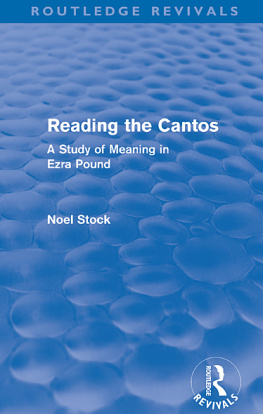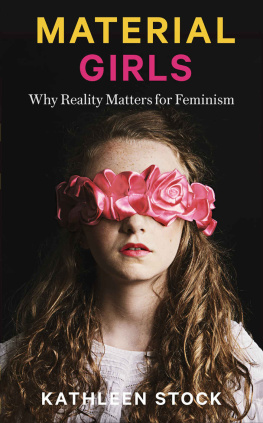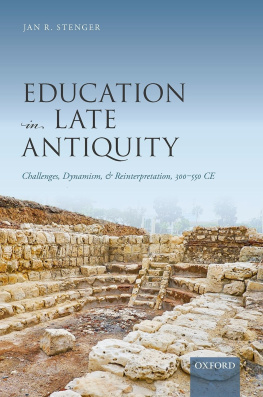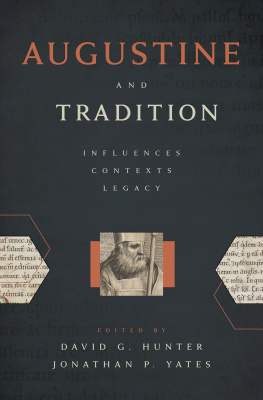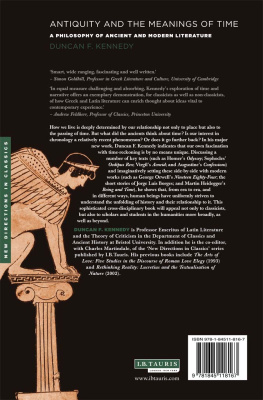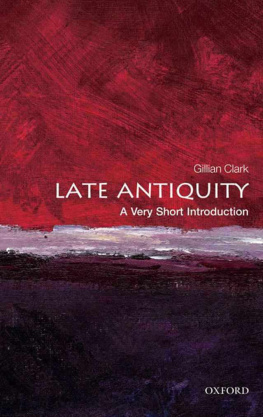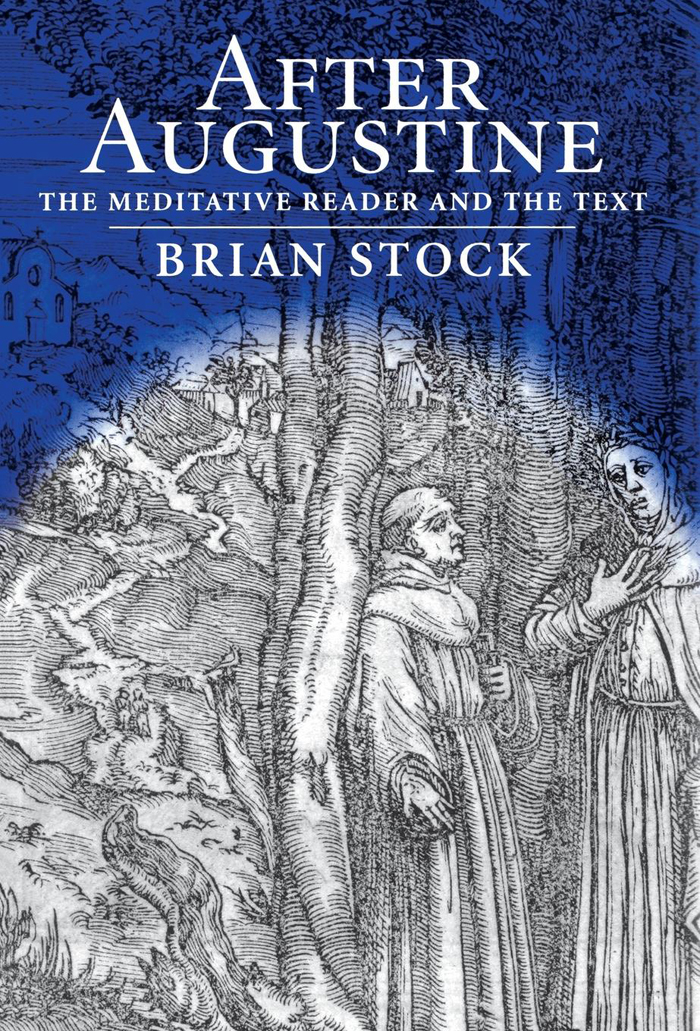After Augustine
MATERIAL TEXTS
SERIES EDITORS
Roger Chartier | Anthony Grafton |
Joan DeJean | Janice Radway |
Joseph Farrell | Peter Stallybrass |
A complete list of books in the series is available from the publisher.
After Augustine
The Meditative Reader and the Text
Brian Stock
PENN
University of Pennsylvania Press
Philadelphia
Copyright 2001 University of Pennsylvania Press
All rights reserved
Printed in the United States of America on acid-free paper
10 9 8 7 6 5 4 3 2 1
Published by
University of Pennsylvania Press
Philadelphia, Pennsylvania 19104-4011
Library of Congress Cataloging-in-Publication Data
Stock, Brian.
After Augustine : the meditative reader and the text / Brian Stock.
p. cm. (Material texts)
Includes bibliographical references and index.
ISBN 0-8122-3602-5 (cloth: alk. paper)
1. Augustine, Saint, Bishop of Hippo. Confessiones. 2. Augustine, Saint, Bishop of HippoBooks and reading. 3. Augustine, Saint, Bishop of HippoInfluence. 4. Self-knowledge, Theory ofHistory. 5. Books and readingHistory. I. Title. II. Series.
BR65.A62 S745 2001
418.401-dc21 00-068269
for
Goulven Madec
Contents
Introduction
During late antiquity and the Middle Ages, the spiritual exercises that were associated with self-improvement were normally based on extensive periods of reading and meditation. As a consequence, the reshaping of ethical values in these exercises became a part of the subjects inner experience. The present volume is an exploration of this theme.
The figure who appears most frequently in these pages is Augustine of Hippo. This is understandable, since he is the most prolific and influential writer on reading between antiquity and the Renaissance. It is clear to all who have studied Augustine that his writings on the topic have important implications. But he refused to spell these out in detail, perhaps deliberately, and as a result his statements were occasionally quoted by opposing sides in medieval debates involving principles of interpretation, as they were by Berengar and Lanfranc during the eucharistic controversy. It can be argued that medieval and Renaissance thinkers were sometimes too systematic in their presentation of Augustines views on reading and interpretation. He did not write a treatise on the topic like the Didascalicon of his twelfth-century admirer Hugh of St. Victor. His reluctance to synthesize his views on other important themes, such as the sacraments, suggests that he would have been skeptical about any attempt to bring together his statements on reading as a formal theory. Yet, despite the unsystematic nature of his writings on the subject, he remained the point of reference to which later writers invariably returned in their search for the roots of problems concerning reading and interpretation. They were fascinated by his story of how he had sifted through the doctrines of ancient schools of philosophy in his effort to defend the close reading of the Bible as the foundation for the Christian life.
The approach to reading that he developed in his various writings appears principally in his philosophy of language, in his method for interpreting the Bible, and in his personal account of his spiritual education.
His philosophy of language is essentially a way of relating words and things by means of signs. As signs can be spoken or written, the same rules apply in principle to communication through speaking and reading. In this dual approach to the subject, Augustine differs from thinkers in antiquity, for example Aristotle, whose influential De Interpretatione is mostly about spoken language. Augustine reflected the ancient concern with speech in his early writings on the subject, De Dialectica and De Magistro; however, when he turned from philosophy to the study of the Bible in De Doctrina Christiana, his interests were focused on written language. The concept of the reader became associated with the interpretation of written signs, and, under the influence of Plotinus, with the modes of contemplation that followed the auditory or visual experience of reading. In the sermons, commentaries, and theological treatises written after his conversion, reading and thinking are closely related activities.
Augustine incorporated his views on reading and interpretation into his portrait of himself in his early years in the Confessions. In book 1 he relates how he learned to speak in childhood and to read and write during adolescence. After the teenage misdemeanors of book 2, he reappears in book 3 as a serious reader of ancient philosophy, Manichaean tracts, and (tentatively at least) the Bible. The subsequent period, described in books 4 to 7, marks his transition into the field of interpretation under the guidance of Ambrose, as well as his abandonment of the oral dialogue, with which he experimented at Cassiciacum as late as 386387, in favor of the written forms of discourse in which philosophy normally appeared in late antiquity. The narrative of these years portrays him as a student who progresses from a youthful infatuation with pagan literature to a mature appreciation of the literal and spiritual senses of scripture. The final chapters of the story take place in books 8 and 9 when he is converted to the religious life by means of a book and experiences a vision of the paradise of the elect, where perfect communication takes place without the need for words. He thus begins the autobiography with one type of speechlessness and concludes it with another.
Augustine took a journey of self-discovery, but in contrast to other ancient authors it was one in which the figure of the philosopher was complemented by that of the reflective reader. In the Confessions this contemplative figure engages in the reading of books and the rereading of a life narrative by means of memory. The lessons of philosophy are learned through reading; they are then applied to the reform or, as some would prefer, the rewriting, of a personal life. Augustine left his own readers the transcript of this experience in the narrative books of the Confessions, doubtless in order to encourage them to try his method of conversion for themselves. In all likelihood he would not have adopted this solution to the Socratic problem of self-examination had he not been a Christian thinker. The manner in which he united the souls progress with the theme of the bodys passage through historical time was greatly indebted to the Christian doctrine of the incarnation. The individual life thereby became the setting for the reenactment of the biblical drama of alienation and return: a Virgilian retelling of the parable of the prodigal son set against the backdrop of Plotinian neoplatonism.
Augustines emphasis on the reflective reader likewise offered a new approach to ethical thinking, some aspects of which are discussed in . He not only asked his readers to consider philosophy as a way of life, as had other Hellenistic thinkers like Epictetus, Seneca, and Marcus Aurelius: he suggested that the literary or artistic imagination of his readers could play a role in sustaining that way of life. To be sure, by the time he wrote the Confessions, between 397 and 401, he had formally rejected pagan literature and ancient philosophy as guides to ethical thinking, unless their doctrines harmonized with the teachings of the Bible. Well before that time, in 386387, he had adopted a modified version of the Platonic view that literary and artistic creations are misleading. During the same period, he also worked out an essentially negative approach to language as a guide to understanding reality.


